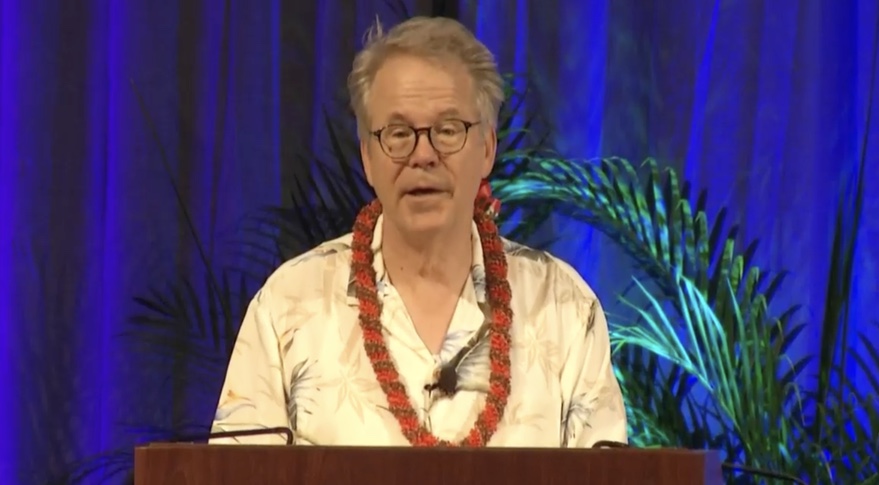WAILEA, Hawaii — The Federal Communications Commission’s adoption of a new rule for disposal of low Earth orbit satellites is well-intentioned but pushing the limits of its authority, says the director of the Office of Space Commerce.
In a talk at the Advanced Maui Optical and Space Surveillance Technologies (AMOS) Conference here Sept. 30, Richard DalBello said the FCC’s approval of new regulations the day before, intended to limit the creation of orbital debris by requiring satellites in LEO to be deorbited no more than five years after the end of their life, illustrates the gaps in domestic space regulation.
“I think the FCC, for their part, has pushed the boundaries of their authorities pretty aggressively,” he said when asked about what agency should have oversight for issues like that, as his office works to create a civil space traffic management capability.
“Although I certainly congratulate them on the depth of their intellectual work,” he said of the FCC and its new order, “a lot of the things that they articulated are probably, arguably, outside their job jar.”
The FCC’s work on orbital debris regulations reflects the “specific grants of authority” given to various agencies, he noted, that can create gaps. An example he cited is that while his office can regulate various types of remote sensing satellite systems, including optical and radar, it cannot regulate radio-frequency monitoring satellites, such as those operated by HawkEye360, because they are not included in the legislation giving that licensing authority to his office.
Efforts are underway by the National Space Council to look at those regulatory gaps as well as identify regulatory frameworks for novel commercial space systems. “We will do what we can in the administration, and ultimately there will be a dialogue with the U.S. Congress, and we’ll see where this ultimately ends up,” he said.
DalBello spent most his presentation talking about the ongoing work by his office to establish a civil space traffic management (STM) capability as required by Space Policy Directive 3 in 2018. He said the office is making progress in developing those capabilities, aided by a memorandum of agreement with the Defense Department announced Sept. 9.
That transition of civil STM from the DOD to Commerce will be a gradual process. “I think that there was this idea that there was going to be this magical date when this transition happened,” he said, which is not the case. “What is likely to happen is that we’ll stand up pieces of this capability and, when we’re stable and DOD feels like we’ve got it, they can step back a bit.”
The discussions with the Defense Department, he said, include access to data from the Space Surveillance Network, which his office will augment with commercial data buys. He added the Commerce Department had no plans to build its own space situational awareness sensors, focusing instead on analysis and distribution of data from other sources.
One issue the office is dealing with, DalBello said, is what kind of basic service it will offer free of charge. “The central message that we’re getting from the commercial sector is, ‘Richard, if all you’re going to do is give us what we’re already getting from the Defense Department, we think that’s not enough.’”
He added that, as the office considers what it can provide as a basic service, it is being careful not to step on the toes of companies that would offer more advanced services for a fee. “That line is a little murky,” he said. “We don’t want to compete with young companies. On the other hand, we do want to provide a forward-leaning, technologically superior product to what they’re receiving today.”
It’s unlikely, DalBello later said, that the Office of Space Commerce will formally define what falls under the definition of a basic service in the near future, calling it a “fluid” situation as the needs and capabilities of industry evolve. He said he brings up in discussions with companies offering STM services how they define the difference between basic and advanced.
“The natural tendency on our team is going to want to get better. So, we’re going to want to do better. And the question is, when does doing better start interfering with somebody else’s valid business plan?”
